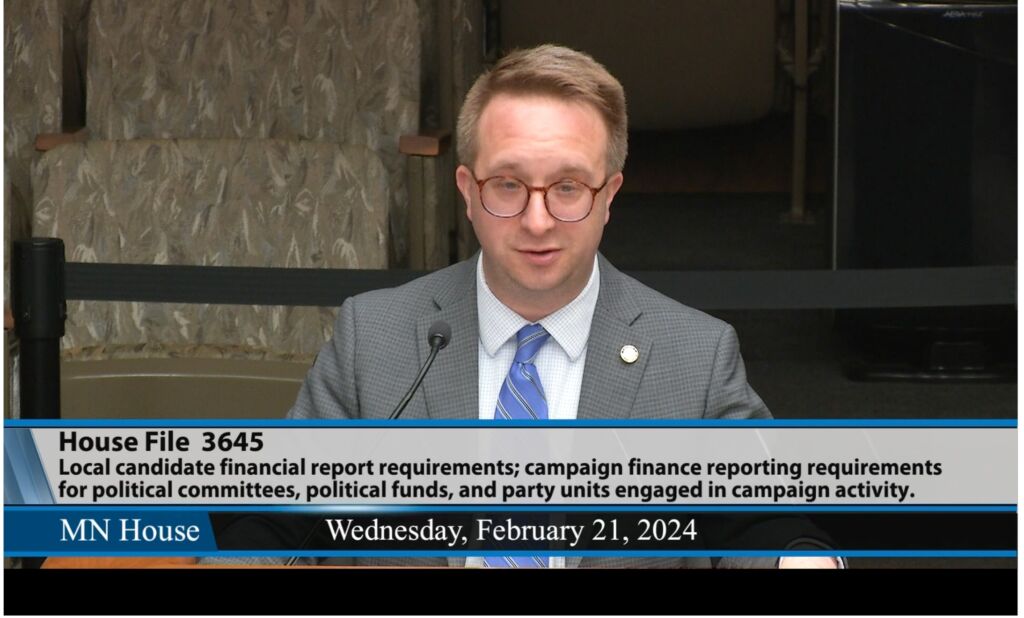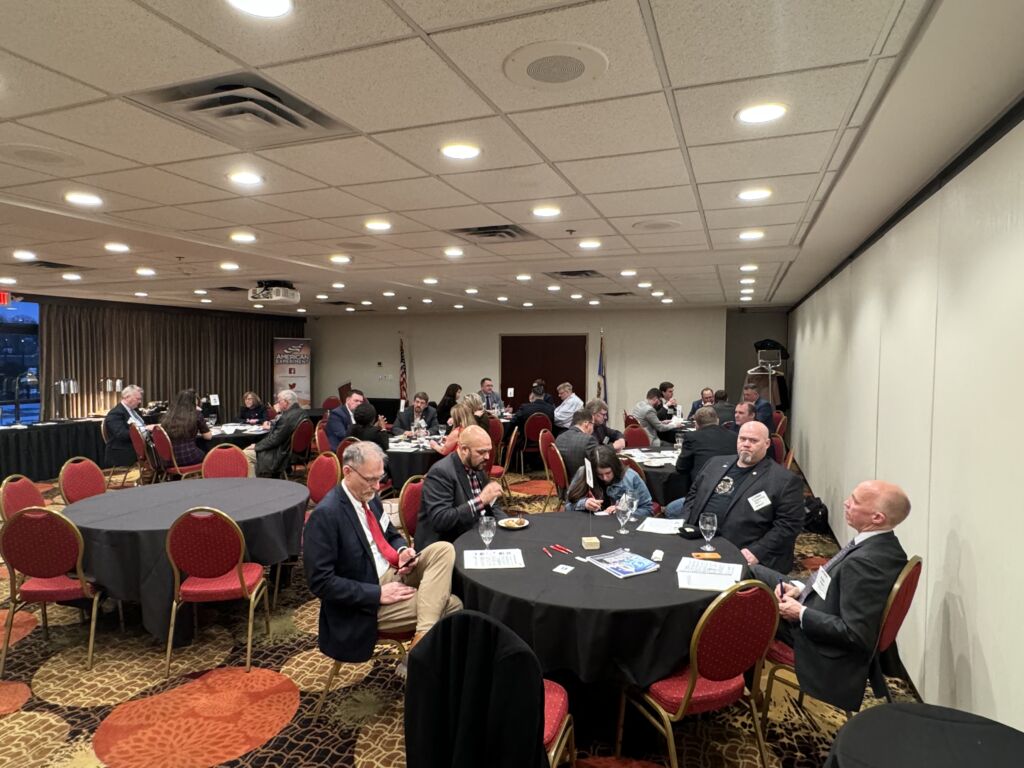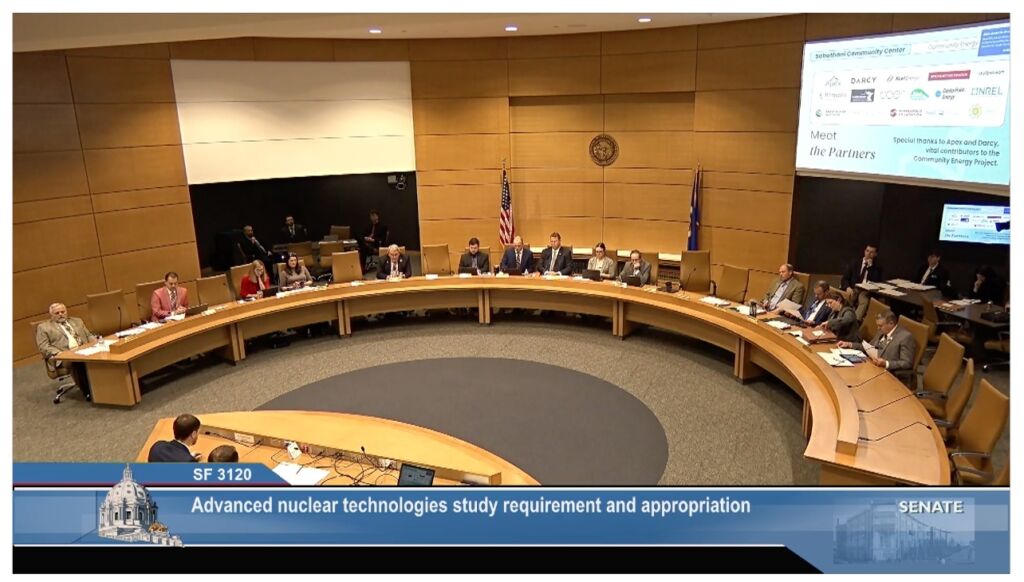Capitol Watch: Misguided election bill heard in House
House Democrats heard a bill in the Elections Committee this week to address what they think is a disturbing trend in Minnesota: people actually paying attention to local school board elections. Life was better for them when voters didn’t care who was on the school board and the local teachers’ union could put their puppets in place to raise salaries, implement diversity, equity and inclusion and de-prioritize academic achievement.
That all changed in 2021 when American Experiment held a modest training session for school board candidates focused on student achievement. Some of them were elected to the school board and that success led to the formation of the Minnesota Parents Alliance, which has quickly become a major force in local elections. HF 3645, authored by Rep. Nathan Coulter (DFL-Bloomington), is targeted directly at MPA and seeks to force political committees to file reports with the state Campaign Finance Board instead of (or in addition to) local counties and school districts.

Rep. Coulter made the case for his bill, saying, “All of us, I’m sure, have seen the changes that have happened as local issues become increasingly un-localized and for lack of a better term, politicized.”
A former school board member from Edina testified in favor of the bill, warning, “Local elections across the state continue to ramp up intensity and gain interest from groups outside their local jurisdiction.”
How dare you politicize our political campaigns! How dare any other statewide organization support and oppose candidates for school board — that’s union turf!
Ironically, Coulter’s bill won’t slow down groups like MPA from raising and spending money on behalf of school board candidates. As we’ve written here, major reforms are needed for the regulation and accountability of local elections in Minnesota. Having committees like MPA and the teachers’ union report directly to the Campaign Finance Board would make life easier, not harder, for political committees.
The weakness in the current local election system is the lack of an investigative body to proactively monitor campaign donations and spending. The system relies completely on opposition candidates or citizens knowing the law and filing a complaint with the Office of Administrative Hearings.
Teacher union conspiracy
For two consecutive elections, Education Minnesota, not the Minnesota Parents Alliance, has been accused (and convicted) of illegal campaign activity. In 2022, the Lakeville teachers’ union was fined $500 for failing to report expenditures in the 2022 election. According to the judge’s order in that case, Education Minnesota was advising their local affiliates to knowingly and willfully violate state campaign finance law when filing reports about spending in local school board races. The smoking gun for this illegal behavior came in the form of an email from the state union advising local chapters “if you have not received invoices yet, you do not need to file until you receive them.” Since Education Minnesota was the “vendor” in these cases, they would purposefully wait until after the election to invoice the local unions for campaign expenditures, thus hiding them from their opponents and the public.
As the judge pointed out, the union’s practice is a blatant violation of state law, which requires candidates and committees to report expenditures when they are “promised” or “pledged.” Complaints have been or are likely to be filed soon against teacher unions about similar activity in the 2023 election.
Is the state union directing local chapters to engage in illegal campaign reporting considered racketeering? A conspiracy? Maybe when racketeering experts Fani Willis and Nathan Wade are dismissed from their Georgia case, they can travel to Minnesota to prosecute Education Minnesota.
American Experiment at the Capitol
American Experiment policy fellows are very busy with the 2024 Minnesota legislative session. On Monday, we held an Issues Bootcamp for legislators and staff, updating them with the latest research and writing on the session’s biggest issues.

On Wednesday, Energy Policy Fellow Isaac Orr testified in favor of SF 3120, a bill to study advanced nuclear reactors. Isaac told the committee any move to reduce reliance on carbon without utilizing nuclear will be “a costly strategy that reduces the reliability of the electrical grid.”

Economist Martha Njolomole is writing a series of pieces she’s calling “The 2024 legislative session so far.” Her first piece was about a bill to raise the minimum wage to $20 per hour. Her second piece discussed a $400,000 proposal to combat racism in children. Watch for future pieces on welfare expansion and housing reform.
Finally, if you want to raise your blood pressure, read Economist John Phelan’s pieces on regulating paint and home electric repairs. John also produced a great new legislative brief about enacting a Taxpayer’s Bill of Rights, or TABOR. His proposal would limit state spending growth to the rate of population growth plus the inflation rate. A guy can dream.
This post was originally sent to subscribers of the Capitol Watch email. To subscribe and see this content first throughout the legislative session, click here.